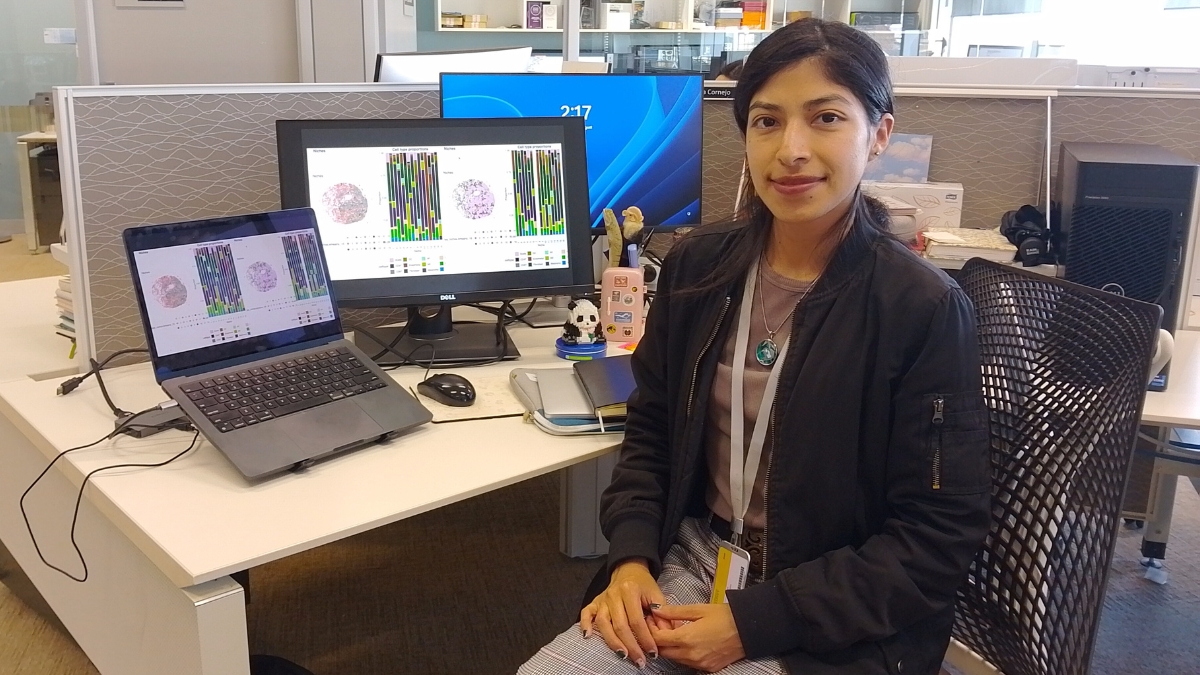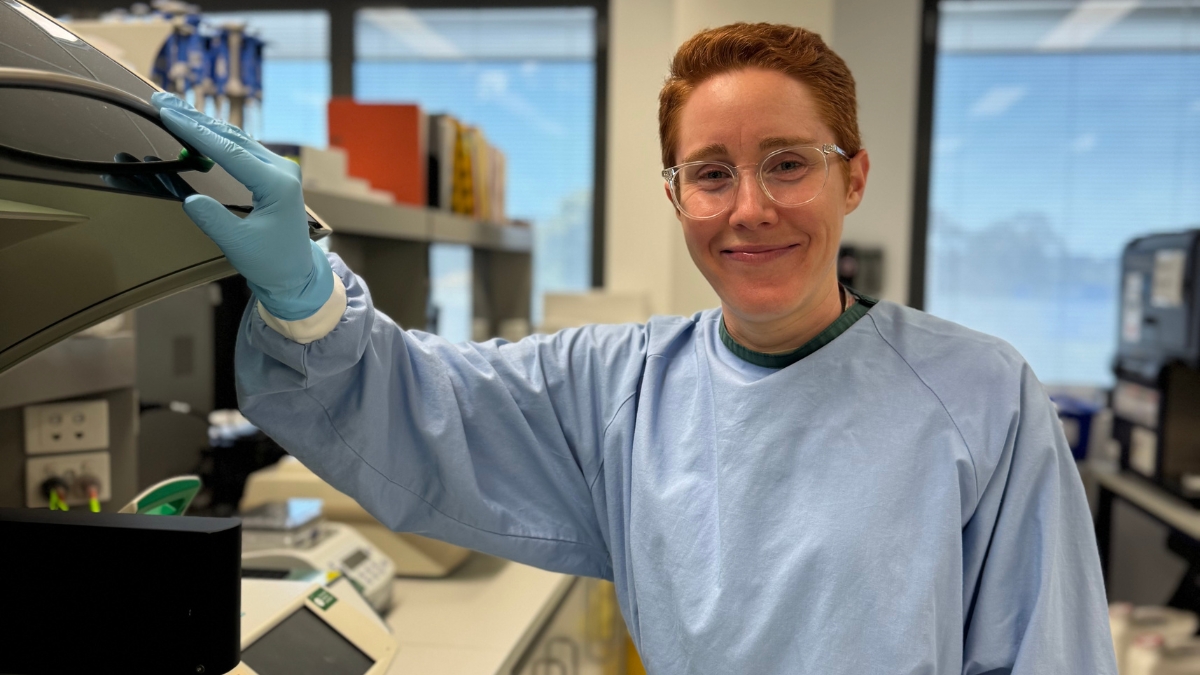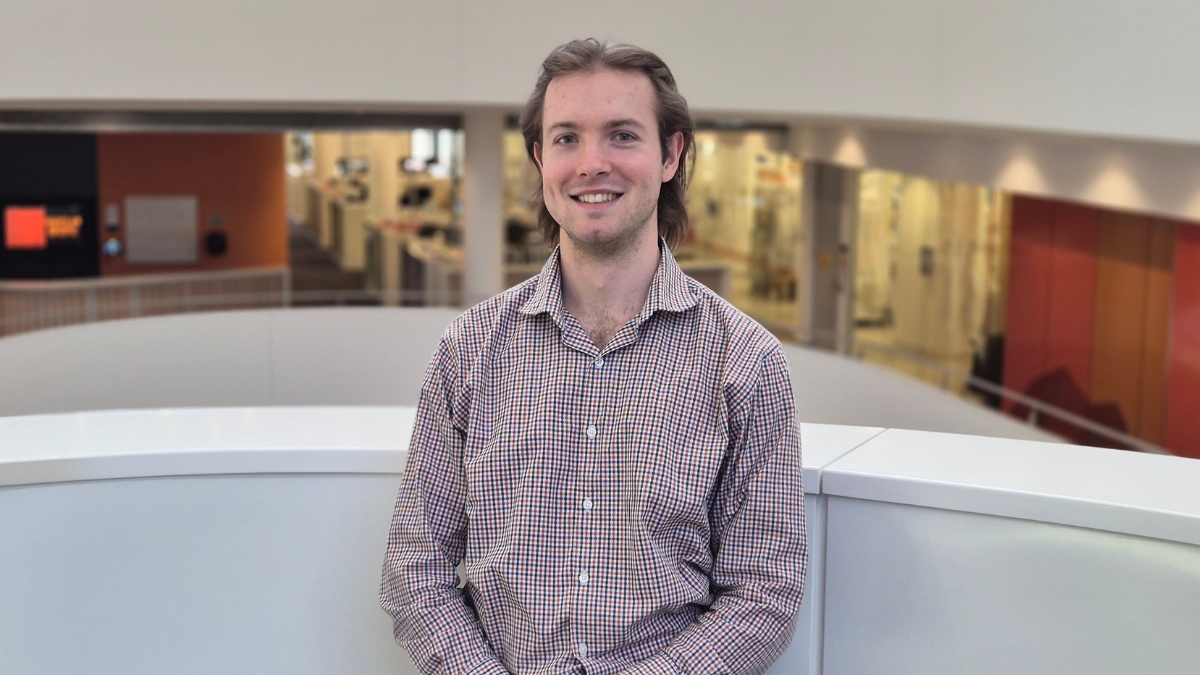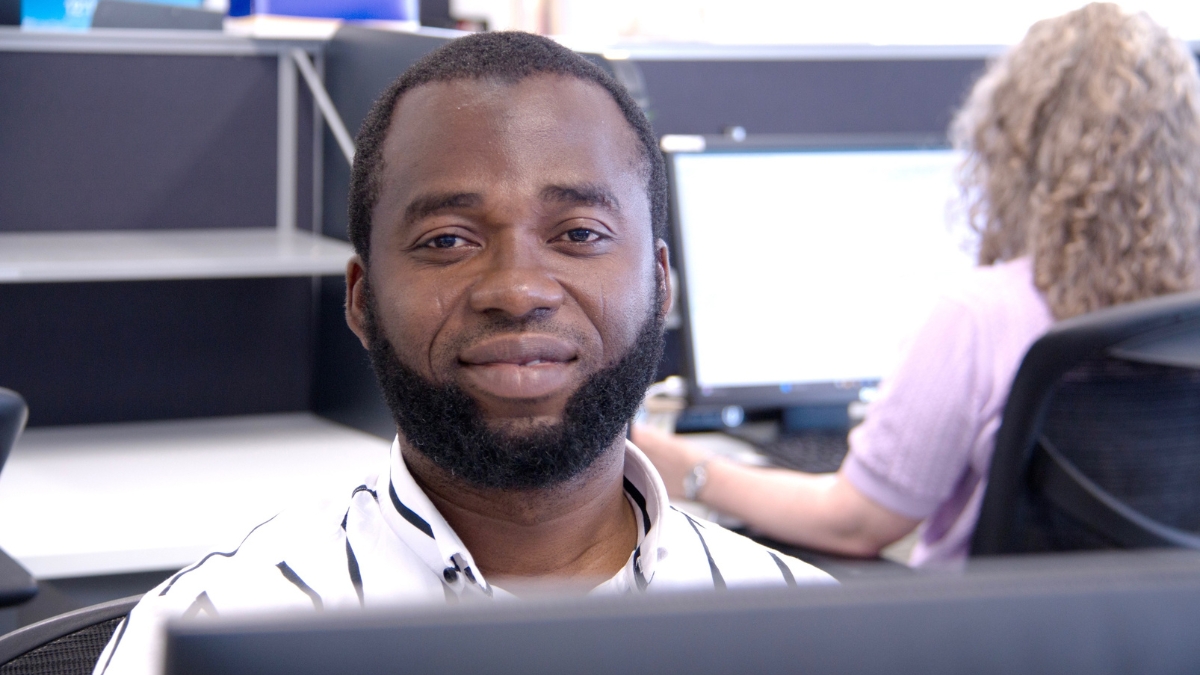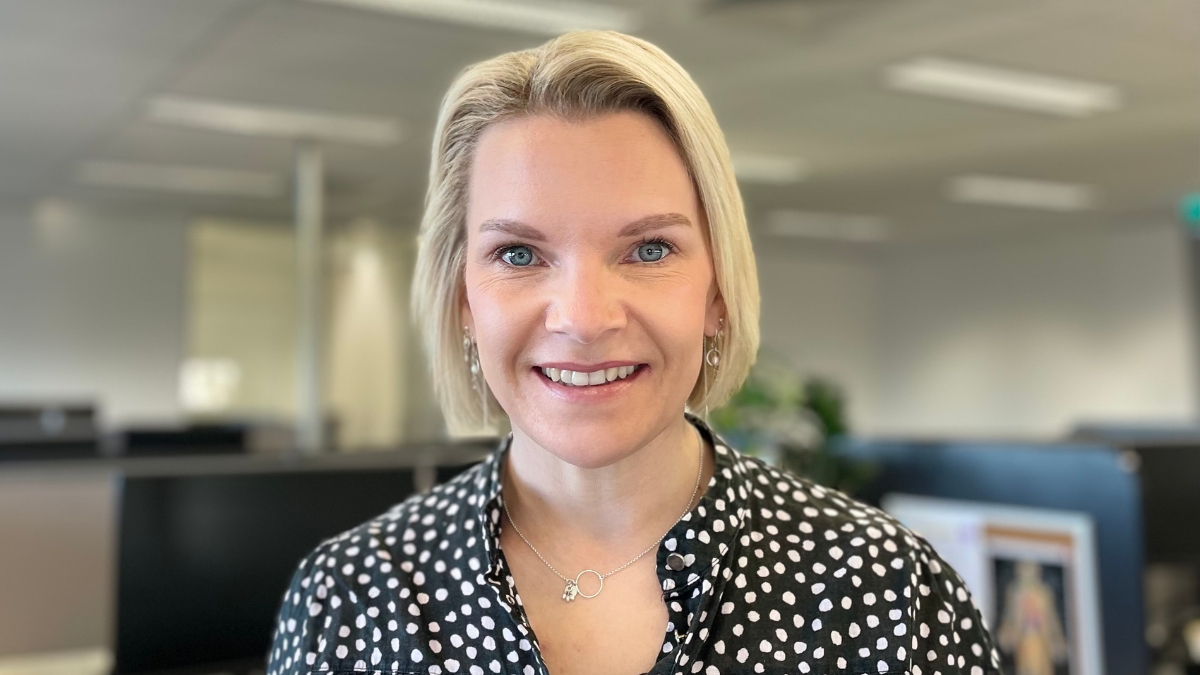Dr Andrea Boutros is a Medical Oncology Fellow at Melanoma Institute Australia. Read his Q&A to learn of his inspiring future career goals, his impressive current work, and his surprising hidden talent!
Can you summarise your latest research?
My latest research revolves around three key projects that reflect my passion for personalised oncology and improving patient outcomes in melanoma:
MatchMEL Study
This project focuses on patients with advanced melanoma lacking common mutations in the BRAF or NRAS genes. The study aims to evaluate the efficacy of immunotherapy across different molecular subtypes and explore novel treatment strategies tailored to these patients, leveraging molecular profiling to guide therapy decisions. Preliminary findings were presented at the European Society for Medical Oncology (ESMO) Congress 2024 in Barcelona, and more details can be found here.
Impact of Melanoma Treatments on Male Fertility
As melanoma often affects younger patients, understanding the long-term effects of immunotherapy and targeted therapies on fertility is crucial. This research, conducted in collaboration with the Andrology Department at Concord Hospital, investigates the potential impact of these treatments on male reproductive health and explores strategies for fertility preservation—an underexplored yet highly relevant area in melanoma survivorship. This project aligns with my prior work in Italy on female oncofertility (the medical field that covers oncology and reproductive health to help cancer survivors preserve their fertility).
Long-Term PD-1 Therapy
This project examines clinical outcomes and challenges for patients requiring prolonged anti-PD-1 therapy. These patients often need extended courses of immunotherapy, raising questions about the underlying reasons for this clinical pattern. Preliminary findings were shared as an oral presentation at the 2024 Australasian Melanoma Conference, hosted by MIA in Sydney, sparking discussions about optimizing long-term care in metastatic melanoma patients and improving patient selection for extended treatment duration.
How did you get into melanoma research?
I began my journey in melanoma research as an undergraduate medical student at the University of Genoa, Italy. My interest was sparked during my time in the Immunology lab there, which led me to start working at the Skin Cancer clinic of our University Hospital Policlinico San Martino in Genoa. During my final undergraduate year, I had the privilege of an exchange at the Dermato-Oncology clinic of the Institut Gustave Roussy in Paris. Oncology has always been the most exciting field of medicine for me, and within that, melanoma stands out as the most fascinating area. This passion guided me through my specialisation in Medical Oncology in Genoa, where I developed expertise in melanoma and non-melanoma skin cancers.
What has been the highlight of your career so far?
Securing my fellowship at MIA has been the most significant achievement and a dream come true. Working alongside clinicians and researchers who are leaders in global melanoma research is an incredible learning opportunity, and I am deeply grateful for the chance to learn from and contribute to such an inspiring team. My research has focused on optimising immunotherapy for cancer patients. I’ve had the privilege of publishing work comparing the quality of life of patients undergoing immunotherapy versus chemotherapy across cancers, and in another research study have described a group of very concerning, severe and unpredictable immunotherapy side effects. More recently, I have contributed to the Italian national guidelines for non-melanoma skin cancers. In November 2024 I also completed my specialisation in Medical Oncology in Italy. I am profoundly thankful for the mentors, colleagues, and patients who have shaped my journey and provided me with unwavering support and inspiration along the way.
What is your favourite part of your work?
Research is my favourite aspect, especially deepening our understanding of the immune system and how to manipulate it. I believe immunotherapy has the potential to revolutionise treatment for all solid tumors. The concept of personalised immunotherapy, as implemented in MIA’s translational Personalised Immunotherapy Platform (PIP), is incredibly exciting as it brings tailored treatment strategies to clinical practice. What makes my work truly fulfilling, however, are the unique human connections we form with our patients. There is no greater joy than being able to tell someone, “You have no evidence of disease”. At the same time, it is a privilege to be there for our patients even in the most challenging moments of their illness. To provide support, understanding, and care during those times of vulnerability is as meaningful as celebrating their victories. It is a privilege to accompany them on their journey and witness their resilience, hope, and strength.
Do you have any future career goals?
To continue contributing to the optimisation of immunotherapy and the personalisation of cancer treatments, ultimately bridging the gap between research and clinical application.
Describe yourself in one word:
“Conscious” – aware of my limits, so I can work to surpass them.
Do you have a hidden talent?
Yes, I used to be a theatre actor!
What is your favourite movie?
The Usual Suspects by Bryan Singer.
What is a book you’ve enjoyed recently?
The Emperor of All Maladies: A Biography of Cancer by Siddhartha Mukherjee.

